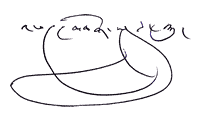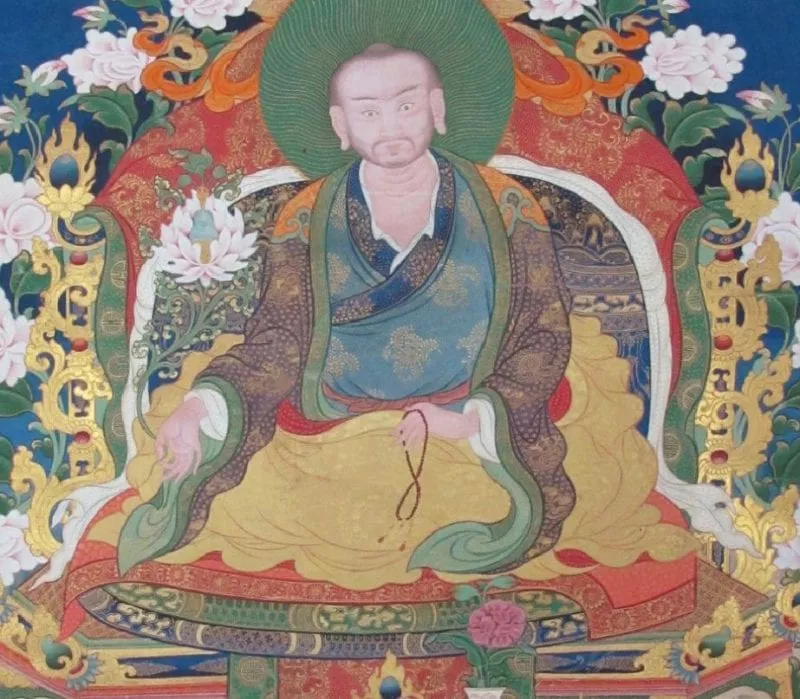Dear friends near and far,
On today’s Guru Rinpoche day, I would like to share with you a teaching that condenses the entire essence of the Causal Vehicle of Sūtra. When the Sakya master, Venerable Chökyi Drakpa Gyaltsen, had a vision of Lord Manjushri, he requested him to expound the essence of Dharma. In response, Lord Manjushri pronounced the following four lines, known as the teaching on “Parting from the Four Attachments:”
If you are attached to this life, you are not a Dharma practitioner. If you are attached to samsara, you do not have renunciation. If you are attached to your own self-interest, you do not have bodhicitta. If attachment arises, you do not have the view.
The first line, “if you are attached to this life, you are not a Dharma practitioner,” mainly refers to the eight worldly concerns. As I see it, most of what we think about throughout the day is caught up in the eight worldly concerns. And whoever is caught up in the eight worldly concerns is not a genuine Dharma practitioner.
In the second line, “if you are attached to samsara, you do not have renunciation,” ‘samsara,’ or cyclic existence, basically means our incessant thinking. Always following our thoughts, we cannot recognize their essence, nor even whether they are virtuous or unvirtuous. As we jump from one thought to the next, we do not recognize the cause of cyclic existence, nor that of liberation. In such circumstances, renunciation has no opportunity to arise. On the other hand, in order to see the nature of our thoughts and to be freed from them, we need to generate renunciation.
The third line, “if you are attached to your own self-interest, you do not have bodhicitta,” refers to our cultivation of compassion and bodhicitta. Pure and genuine compassion and bodhicitta are untainted by even the slightest trace of clinging or self-interest. Here, self-interest means the subtle hope we usually keep throughout all our actions and our practices for some kind of benefit that we might enjoy. In order to abandon this subtle clinging to our own self-interest, we need to exchange self and other through the practice of tonglen, giving and taking.
Finally, in the last line, “if attachment arises, you do not have the view,” attachment means the conceptual mind. Our minds are constantly occupied with thoughts of the past, present, or future. This incessant conceptualization is a form of attachment. When we rid ourselves of all such attachment, self-cognizing wisdom, the genuine view, arises. But as long as you have attachment, the genuine view will not arise.
Therefore, on today’s Guru Rinpoche day, I would like to remind you with this pithy teaching that we all need to cleanse our minds. With impure minds, engaging in impure activities, we tend to forget this essential point. Therefore, as a reminder to us all, I thought I would share this seminal teaching on Parting from the Four Attachments.
With all my love and prayers,
Sarva Mangalam.

Translations
简体中文
繁體中文
Français
Deutsch
Ελληνικά
Bahasa Indonesia
नेपाली
Português
Español
ภาษาไทย
Українська
Tiếng Việt






Responses
Good morning,
wasn’t it Drakpa Gyaltsen’s father, who had the Vision of Manjushri and who received that way the teaching of the departing from the 4 Attachments ?
Dear Olaf,
Thank you for your question. Yes, as you say, the vision of Manjushri appeared to Sachen Kunga Nyingpo (ས་ཆེན་ཀུན་དགའ་སྙིང་པོ). His son, the third Sakya Patriarch Drakpa Gyaltsen, composed the verse format and popularized the teaching widely. We hope this clarifies the attribution.”